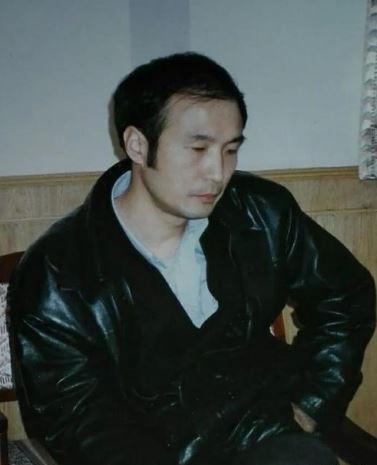Chinese Go is to pay attention to inheritance, after the founding of New China, the top master of Chinese Go is The South Liu Beiguo, Liu Dihuai is known as Liu Dajian, strong, playing chess is a son who does not give up, he has influenced many Chinese power-fighting chess players, such as Jiang Zhujiu, Liu Xiaoguang and others. And Nie Weiping's teacher had been from Tisheng, and Nie Weiping was good at abandoning his son, and Nie Weiping had done his best to pass on the true tradition.
In 1984, the first Sino-Japanese Go Tournament kicked off, and due to E's excellent performance, Kobayashi Koichi stepped into the ring early in the morning.

Liu Xiaoguang
Nie Weiping
The first inning of the four outcasts
Based on the first China-Japan Go Tournament Liu Xiaoguang's eight-dan black match against Kobayashi's 19-dan (white) match, a total of 208 hands, white win 1/4 son. On July 31, 1985, he was in Beijing.
Basic picture situation: At this time, the two sides are fighting, and Liu Xiaoguang has the opportunity to abandon his opponent in one fell swoop.
It was a near-perfect plan, planned by Nie Weiping.
Figure 1: Unfortunately, Liu Xiaoguang missed the opportunity to win in one fell swoop. The plan is that black 1 hits black 3 jumps, black chess discards a dozen subs on the side, and then surrounds the bottom, which is a fast winning channel, if this figure is realized, it is estimated that Kobayashi Koichi will not have a chance.
If Liu Xiaoguang comes out of this situation, this game of chess will become the first game of the outcast.
Unfortunately, Liu Xiaoguang lost the opportunity, and later fell into five consecutive defeats against Kobayashi Guangyi, and did not shoot a single shot.
The second inning of the Four Great Abandoned Sons
The Sino-Japanese Go Tournament is not only the stage for Nie Weiping to become famous, but also witnesses the growth and progress of liu Xiaoguang and other chess players.
Based on the 4th round of the 9th China-Japan Go Tournament, Liu Xiaoguang played the match between Black and Ida Jiji (White), 183 hands, and the black game was won on April 29, 1994.
Basic picture situation: In the front, Yi Tian Jiji suffered a loss, the situation is already not good, and now he is holding the 84th hand to break up and find an opportunity to desperately come.
Reference figure 2: In the past, Liu Xiaoguang's temper was 1 to 7, a scuffle, but this is exactly the situation that Yi tian Jiji expected.
Actual combat figure 1: Liu Xiaoguang thought about it a little, at this time he chose to abandon the son and turn around, we see the other side of the style of this powerful chess player, which also indicates Liu Xiaoguang's progress.
Actual combat figure two: the black chess cover abandons more than 20 eyes, abandons the sub to take the momentum, builds the external situation and then grabs the first hand, and then attacks the black chess piece under the right, forcing the white chess piece to work with both eyes, and finally seizes the 11th place that controls the situation, and the overall advantage is always there. And it's easy to put down.
This is Liu Xiaoguang's famous game.
Historical Bureau
The third inning of the four major outcasts
Based on the 1976 Japanese Honinfang Round Robin Round Robin (Black) and Lin Haifeng (White) matchup, 138 hands, white in the middle of the game, played on November 18, 1976. Qu Liqi's nine-stage conception is grand, and there are often amazing moves in the mid-session stage.
Basic picture situation: Qu Liqi held the black face lin Haifeng 26, 28 into the two hands, with a surprising plan to abandon the son.
Actual Combat Figure 3: Qu Liqi's idea of nine outcasts is super big, the five sons on the left say that they abandoned it, and then the black chess piece on the right appears extremely large.
Actual Combat Figure Four: Lin Haifeng's nine paragraphs are of course to hold the real space first.
Practical figure 5: Qu Liqi looks at the huge area on the right and even above as his own back garden. Lin Haifeng was also not polite and stepped in with one foot. Qu Liqi 2-6 is the attitude of eating chess. Later, Lin Haifeng Jiudan used his skillful Tengnuo Kung Fu to make two eyes in the black array, and the two sides jointly deduced a round of attack and defense.
Ohtake Hero
The fourth inning of the Four Great Abandoned Sons
Based on a game in Japan's second chess jihad challenge decision battle, Hideo Ohtake is black and Hashimoto Shoji is played in 1978. This is Otake's famous game of showing the grand idea of abandoning the son.
The basic picture situation: Hero Otake holds black, Hashimoto Masaji holds white, and black chess is faced with a choice at this time.
Actual combat figure six: The method of black chess after the game is the same as the Tao, the white chess is forced to eat the black eight sons, and the appearance of the black chess becomes grand.
Actual Combat Figure Seven: The Hero of The Great Bamboo continued to expand, and the white chess had to lose some locally in order to get ahead. After the black chess has gained amazing power, the previous outcasts have been doubly rewarded. Dazhu's beautiful discarded tactics are skillfully used, and the aesthetics of Dazhu are really chess-
This is the outcast of hero Otake.